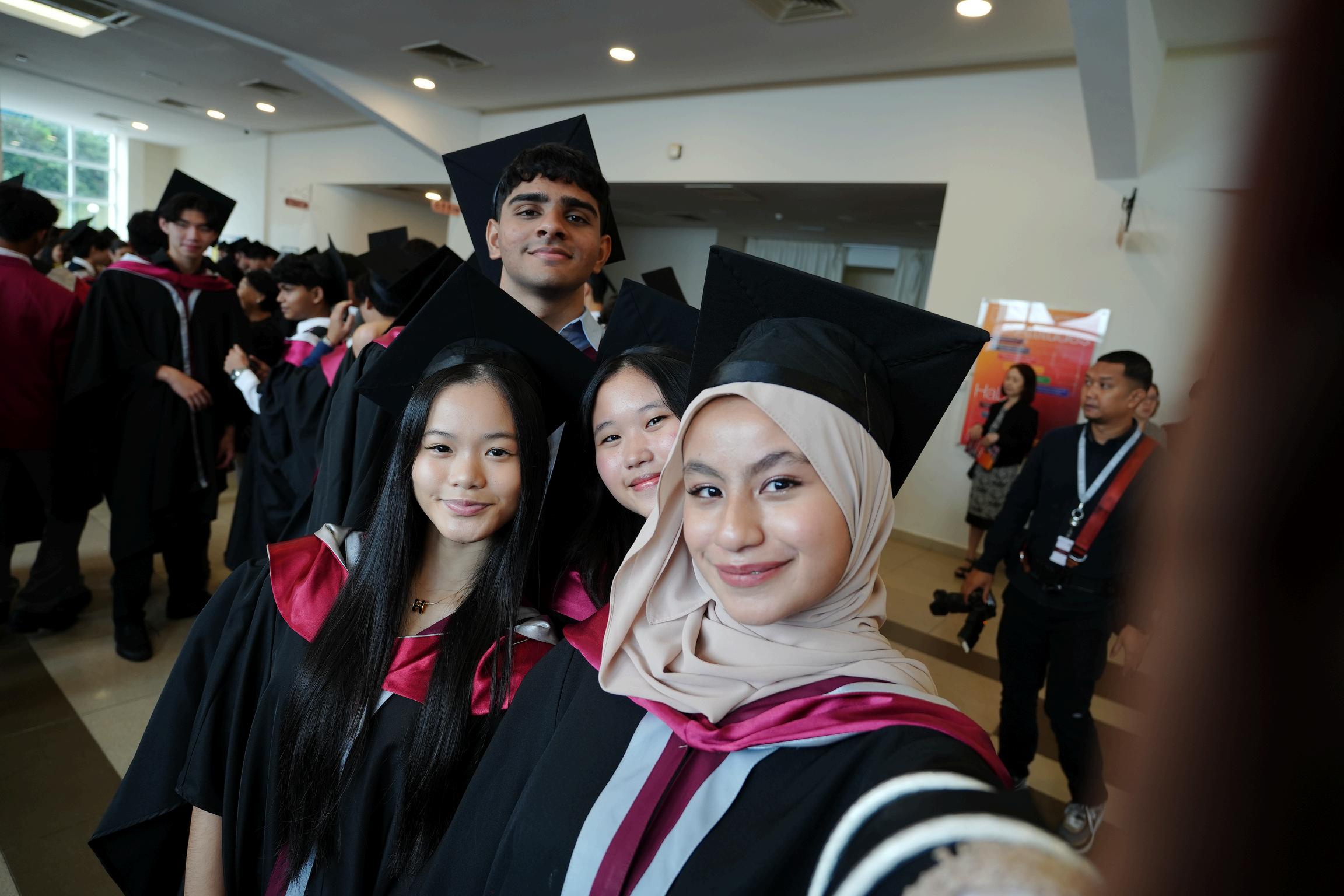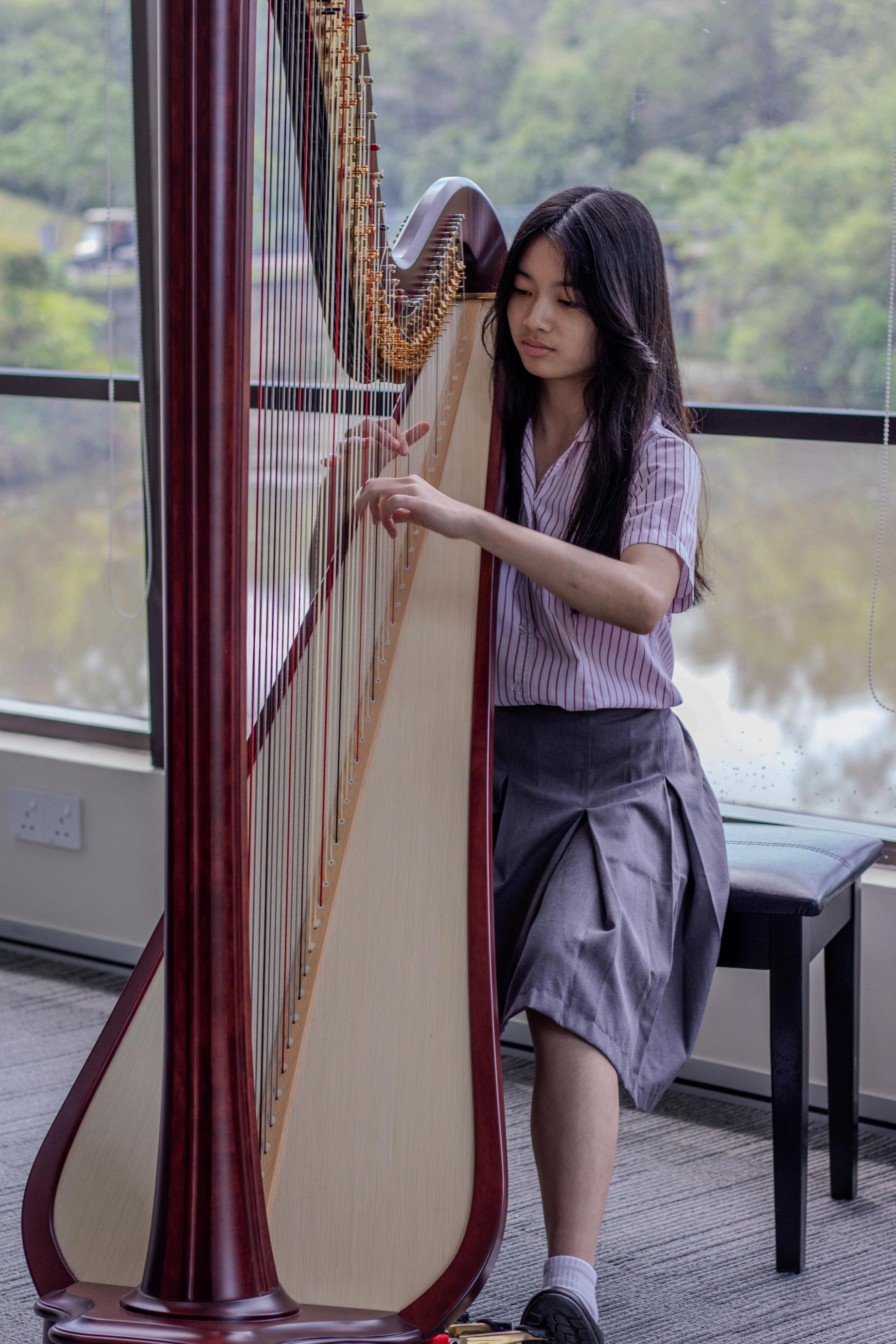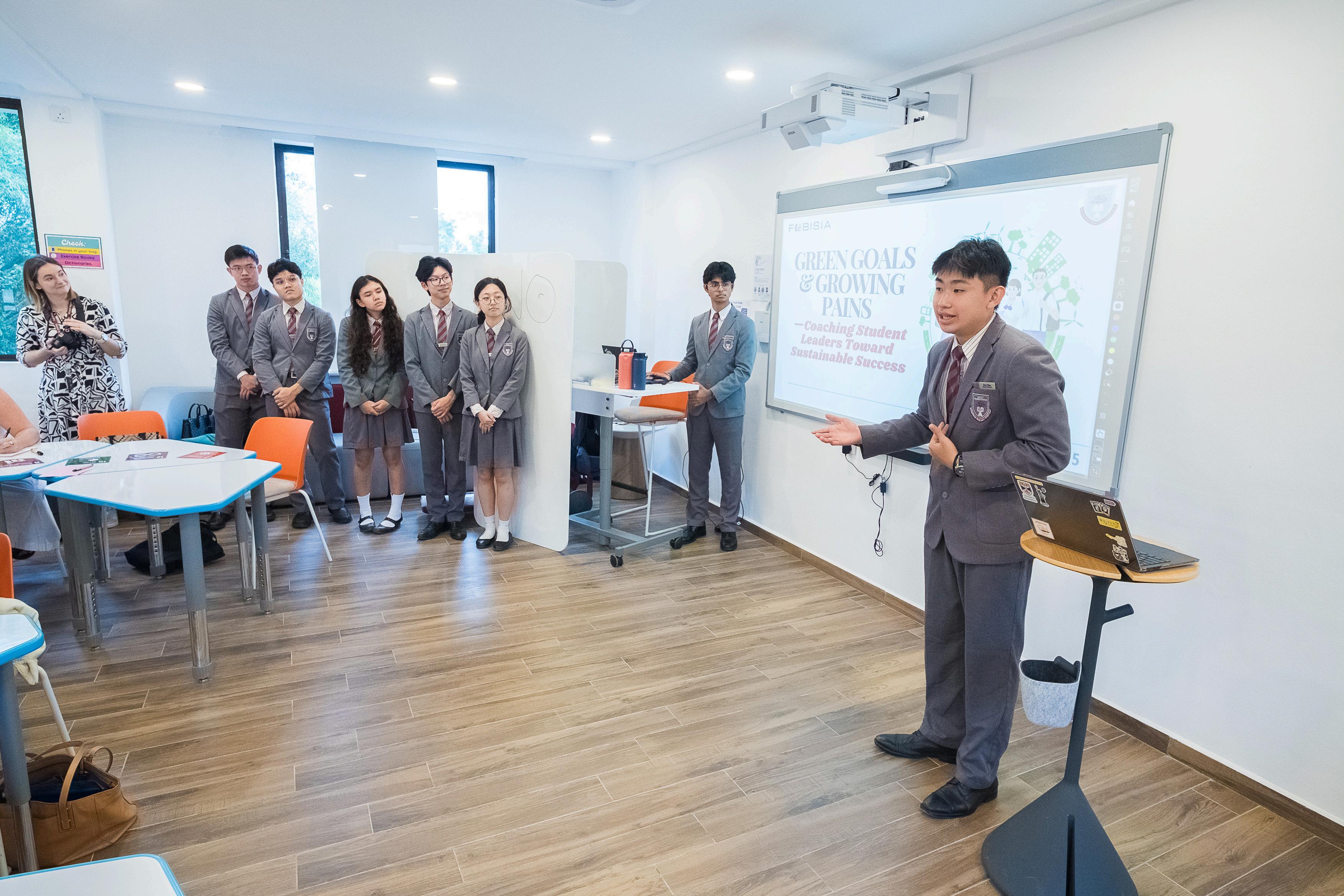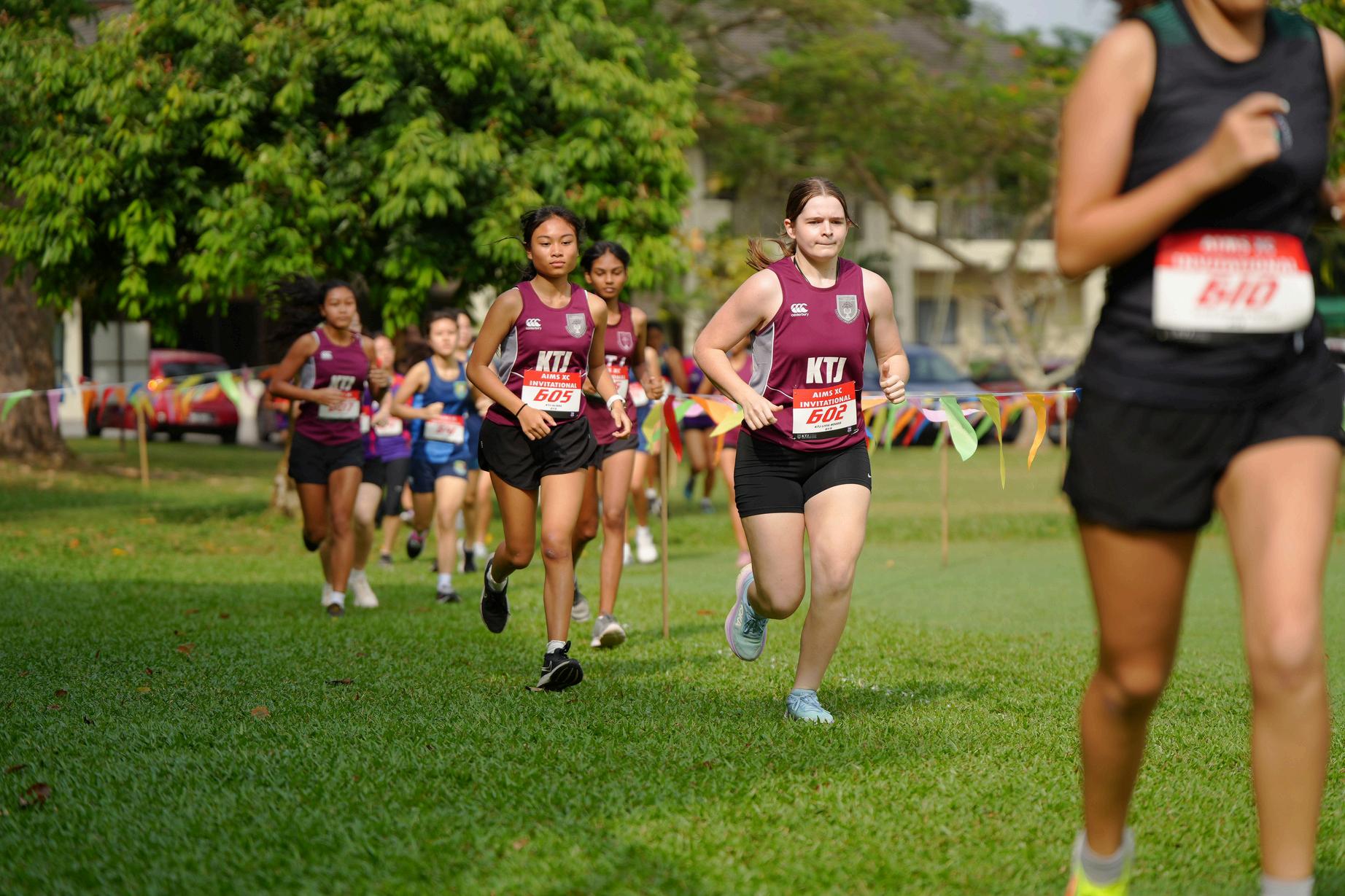
A Level Subject Choices Handbook | 2025-27

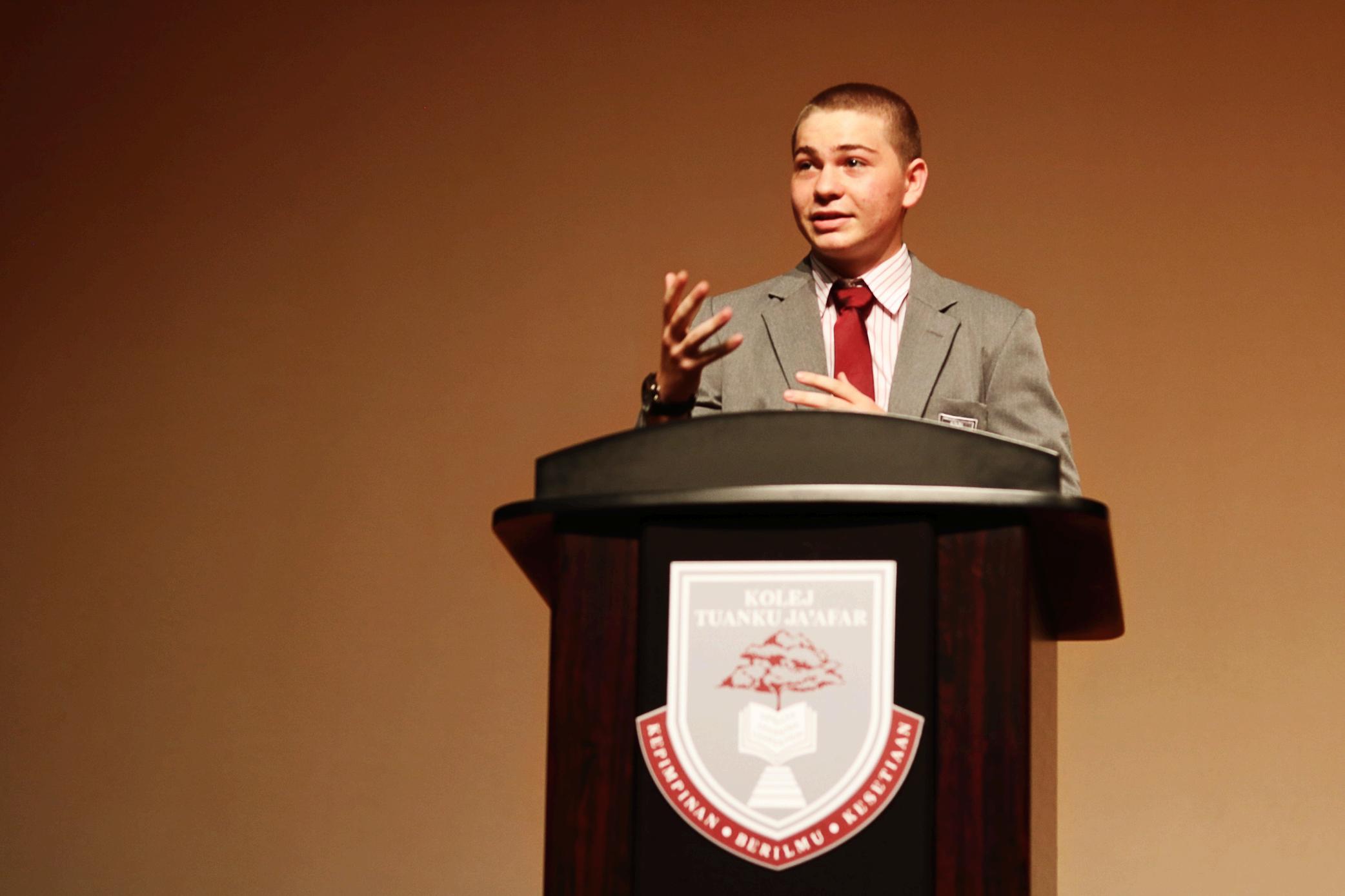

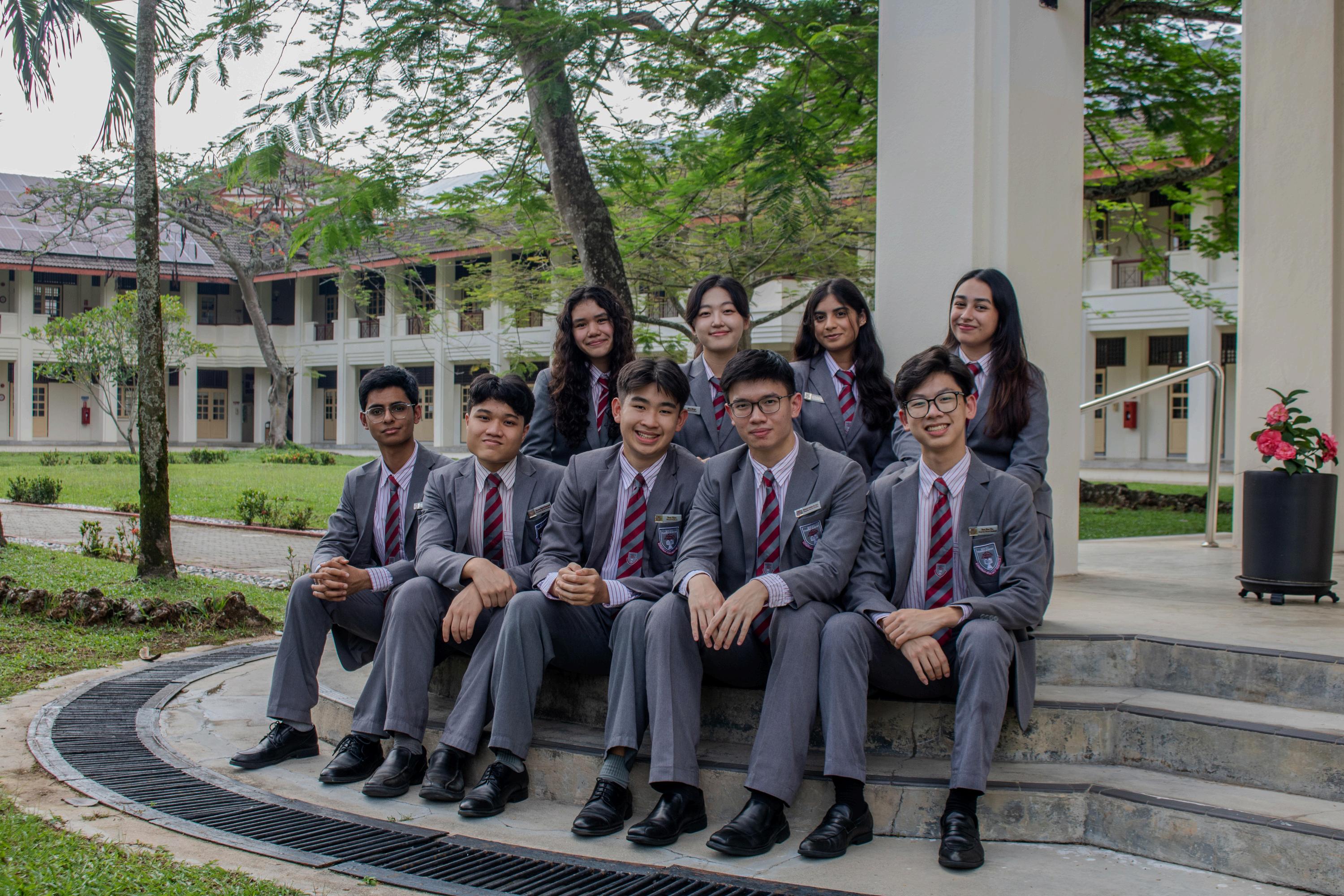






Years 12 and 13 represent the final and most advanced stage of secondary education, where students engage with rigorous academic content through A Level or equivalent pathways. Our curriculum is vertically aligned to previous years, ensuring continuity, while promoting interdisciplinary thinking through horizontal links across subjects. At this level, students sharpen their intellectual independence, research skills, and subject mastery in preparation for university and global careers. Leadership, global citizenship, and ethical engagement are central themes—students are expected not only to learn but to lead, collaborate, and innovate. We provide a dynamic, forward-thinking academic environment that cultivates both academic success and the attributes of globally responsible individuals. This booklet outlines each subject's focus, assessment criteria, and skills progression, helping parents understand how our curriculum prepares students for the challenges of higher education and their roles as informed, ethical leaders in a globalised world.
Curriculum connections and interdisciplinary learning
At KTJ, we believe that deep understanding is nurtured when students can make meaningful connections across subjects. Our curriculum is designed with a whole-school vision in mind, ensuring coherence and collaboration between departments. All staff are aware of the broader curriculum journey, and work together to reinforce key skills such as analysis, problem-solving, communication, and creativity—across disciplines.
Interdisciplinary learning is enriched through CCAs, educational trips, and carefully planned cross-curricular projects that highlight the real-world relevance of what students learn. Whether exploring environmental themes across Science and Geography, blending History and Literature through shared contexts, or applying mathematical models in Business or Design, students see that knowledge is not confined to subject boundaries. These opportunities help learners view their education as a connected whole, developing flexible thinkers prepared for a complex, global world.

At KTJ, we are deeply committed to delivering an inclusive, high-quality education that meets the needs of every learner. Adaptive teaching sits at the heart of this mission. It ensures that all students—regardless of starting point—can access the full breadth and ambition of our curriculum. Drawing on the latest research, including Tom Sherrington’s Walkthrus and guidance from the Education Endowment Foundation (EEF), adaptive teaching helps our teachers to respond intelligently and consistently to student needs.
Proactive adaptation: Before the lesson
Effective adaptive teaching begins before the lesson. Teachers analyse data, provision maps, prior knowledge, vocabulary gaps, cultural experiences, and potential misconceptions. This informs lesson planning that includes:
Use of scaffolding, such as sentence stems or models.
Accessibility adjustments (font size, visuals, clarity of task).
Tailored teaching strategies for EAL, SEND, or low-attaining students.
Liaison with the SENDCO and planned TA deployment.
Designing in opportunities for pre-teaching or retrieval.
Proactive planning ensures barriers are anticipated, not just reacted to, promoting equity through thoughtful preparation.
Responsive adaptation: During the lesson
Adaptive teaching continues in the moment, using formative assessment to check for understanding and respond in real time. Teachers use strategies such as:
Cold calling, hinge questions, and mini whiteboards.
Live modelling and use of analogies or visual prompts.
Adjusting language, re-explaining tasks, or clarifying success criteria.
Modifying challenge level and using live feedback.
Flexible grouping and backward fading to reduce support over time.
This responsive approach helps close gaps as they arise and ensures that misconceptions do not persist unaddressed.
Adaptive teaching is not about creating separate tasks for every student, but about delivering a high-quality, ambitious curriculum in ways that all learners can access. Through proactive planning and responsive in-lesson actions, teachers at KTJ ensure progress, promote independence, and reduce the need for intervention later.

At KTJ, assessment is not simply about tracking outcomes—it is a powerful tool for guiding learning. Our approach prioritises checking for understanding through continuous, low-stakes assessment that allows students to reflect, improve, and develop core knowledge and skills. We create a culture of risk-free learning, where students are encouraged to make mistakes and learn from them, fostering resilience and deep understanding. After all, it is often through mistakes that the most meaningful progress is made.
Teachers use live feedback as a central strategy to adapt teaching in real time. This may take the form of hinge questions, cold calling, mini-whiteboard responses, or verbal check-ins—all of which provide immediate insight into student understanding. This allows for agile re-teaching, clarification, or deepening of content in the moment.
Assessment opportunities are often cunningly blended with practice tasks that mirror exam conditions, reinforcing subject-specific skills without compromising student confidence. By doing this regularly, we prepare students not only for summative assessments but also for lifelong learning and reflection.
Assessment methods are thoughtfully adapted to suit the nature of each subject. For example:
In Maths and Science, precise written responses and problem-solving are checked frequently for accuracy and process.
In English and Humanities, analytical thinking and argument construction are modelled and practised, with feedback targeting structure, clarity, and depth.
In creative subjects, assessment includes peer critique, performances, or portfolios, encouraging reflective improvement.
Regular checks for understanding do more than guide individual lessons they shape future curriculum planning and assessment design. Teachers analyse patterns in performance to identify gaps, misconceptions, or opportunities for stretch and support. This cyclical process ensures our teaching remains responsive, inclusive, and aspirational.
At KTJ, we believe that wellbeing and academic success go hand in hand. A student who feels safe, supported, and valued is far more likely to thrive intellectually and personally. Our pastoral care system is deeply integrated with our academic structures, ensuring that every learner is seen, known, and nurtured.
There is exceptional communication between House Parents, Form Tutors, and academic staff, allowing us to take a holistic view of each student’s progress. Our dedicated counsellors and pastoral support workers collaborate closely with teachers to identify barriers to learning—whether emotional, social, or behavioural—and to develop targeted support plans.
We foster a culture of care and accountability through restorative practice, helping students reflect on challenges and rebuild positive relationships. Co-coaching between pastoral and academic staff strengthens our shared understanding of student needs and promotes consistent, compassionate responses. This integrated approach ensures that every child has the foundation to reach their full potential.
At KTJ, we are proud of our vibrant and collaborative teaching culture, where every teacher is both a learner and a leader in the pursuit of excellence. We believe that outstanding teaching and learning are driven by reflection, shared practice, and a commitment to staying abreast of educational research. Our approach ensures that students benefit from consistently high-quality, evidence-informed instruction in every classroom.
A central feature of our professional learning culture is the KTJ Buddy System. Every teacher is paired with a colleague to provide mutual support, encouragement, and reflection. This peer-to-peer model promotes honest dialogue, practical idea-sharing, and continuous professional growth in a safe, respectful environment. It is an essential part of how we build trust and openness within our teaching community.

In addition, our weekly CPD (Continuing Professional Development) sessions offer structured opportunities for staff to engage with current research and emerging best practices. Sessions are aligned with school priorities and focus on all aspects of teaching and learning—from curriculum design and adaptive teaching to effective questioning and formative assessment. These sessions also create space for innovation and exploration, empowering staff to implement new strategies confidently in the classroom.
We are fortunate to have Tom Sherrington as a critical friend, whose guidance, rooted in the Walkthrus model, helps shape our pedagogical approach. His collaboration supports our continued drive for excellence and ensures that our strategies remain deeply anchored in current, high-impact research.
This work is strengthened by the close, strategic partnership between curriculum leaders and leaders of teaching and learning, who operate in perfect symmetry. Together, they ensure that what we teach and how we teach it are perfectly aligned—supporting progression, coherence, and student engagement across the school.
We reinforce these developmental structures through a rigorous but supportive quality assurance system, including learning walks, cocoaching, and developmental observations. These are not about performance management but about identifying and celebrating effective practice while supporting areas for refinement. Staff are encouraged to trial approaches, reflect collaboratively, and take ownership of their professional growth.
Our commitment to exceptional teaching and learning is not static—it is dynamic, evolving, and rooted in a whole-school culture of reflective practice. Through this, we ensure that every student at KTJ benefits from a rich, challenging, and supportive educational experience.

At the heart of our curriculum is the development of global citizenship — a vital quality for every young international student in today’s interconnected world. Global citizenship is defined through seven key pillars: Ethics, Diversity, Global Issues, Communication, Global Service, Leadership, and Sustainable Lifestyle. These values empower students to think critically, act compassionately, and lead responsibly across cultures and communities.
Each subject area integrates these principles to foster awareness, empathy, and action. From understanding ethical dilemmas in literature to addressing climate change in science, students gain a holistic education that extends far beyond the classroom. Global citizenship is essential not only for individual growth but for building a more just, peaceful, and sustainable world. By nurturing these qualities early, we prepare our learners to become thoughtful leaders and active contributors to positive global change. Together, we are shaping citizens of the world — ready for tomorrow, rooted in values today.
Intercultural learning is a vital part of our curriculum, distinct from—but closely linked to—global citizenship. While global citizenship focuses on global responsibility and leadership, intercultural learning emphasizes how we understand, respect, and engage with diverse cultures in our everyday lives. It is rooted in four key pillars: Cultural Inclusivity, Anti-bias/Open-mindedness, Conflict Resolution, and Cultural Celebrations.
These pillars guide students to value differences, challenge stereotypes, and build positive relationships across cultures. Through activities, discussions, and real-world applications, students learn to navigate cultural complexities with empathy and respect.
Intercultural learning is embedded and tracked across all subjects, with strong inter-disciplinary links encouraging students to make connections between history, language, the arts, and beyond. This fosters deeper understanding and allows for richer classroom experiences.
By nurturing intercultural competence, we prepare students to thrive in diverse environments—empowered not just to live in a global world, but to connect meaningfully within it.

Wellbeing and PSHE (Personal, Social, Health and Economic education) are at the core of our commitment to developing confident, healthy, and resilient learners. Through dedicated PSHE lessons and integration across all subject areas, we explore key themes including: Physical and Mental Health, Growing and Changing, Personal Safety, Relationships and Sex Education, Bullying and Discrimination, Media and Digital Literacy, Money and Careers, and Community and Responsibility.
These areas equip students with essential life skills, emotional intelligence, and the confidence to navigate an ever-changing world. While every subject contributes to a student’s personal development, our dedicated PSHE programme ensures focused, age-appropriate learning in a safe, supportive environment.
We believe that when pastoral care and academic learning work hand-in-hand, students thrive. Happy, self-aware learners with high selfesteem not only lead more fulfilling lives but also achieve stronger academic outcomes. Our aim is to nurture well-rounded individuals ready for all aspects of life.
In an increasingly digital and AI-driven world, teaching young people to be responsible, ethical digital citizens is more important than ever. Our digital citizenship curriculum equips students with the knowledge and skills to navigate online spaces safely, respectfully, and thoughtfully. Key themes include Privacy & Security, Cyberbullying, Digital Drama & Hate Speech, Digital Footprint & Identity, Relationships & Communication, News & Media Literacy, and Media Balance & Well-being.
These areas are explored both in dedicated lessons and across subject areas, ensuring students understand how their digital lives connect with the real world. With the rapid development of technology, particularly AI, students must be prepared to engage critically and responsibly with digital tools, platforms, and information.
Digital citizenship goes beyond internet safety—it’s about shaping mindful, informed individuals who can lead with integrity in the digital age. As global citizens of the future, our students must be equipped to use technology to build, not divide, the world around them.

Students will gain a comprehensive understanding of different types of business entities and the principles that underpin financial systems. They will learn about manual and computerised accounting systems, and explore the distinction between capital and revenue income and expenditure.
Students will understand how to ensure the accuracy and integrity of financial records. They will learn how to prepare and interpret a trial balance, identifying discrepancies and understanding their implications. The topic also covers bank reconciliation and the use of control accounts as a tool for verifying the accuracy of subsidiary ledgers.
Students will learn to prepare and adjust financial statements for various entities, including sole traders, partnerships, limited companies, clubs and societies, and manufacturing businesses. The topic also covers regulatory and ethical considerations, as well as the financial reporting aspects of business acquisitions and mergers.
Students will explore how accounting information is used by various stakeholders to support decision-making. They will learn to calculate and evaluate key financial ratios, including those relevant to shareholders, and interpret the results to assess business performance. Emphasis is placed on effectively communicating these insights to different users of financial information.
Students will study key costing methods including absorption, marginal, and activity-based costing, alongside costvolume-profit analysis. They will also explore budgeting, standard costing, and investment appraisal to support financial planning and decisionmaking. Emphasis is placed on analysing material and labour costs and applying costing techniques in real-world business contexts.

Students will be assessed through a variety of methods, including topical tests to evaluate their understanding of specific accounting concepts, practical exercises to develop their application skills, live feedback during lessons to address misconceptions in real-time, and a trial examination to simulate the final exam environment. These assessments aim to ensure a comprehensive understanding of the subject, improve problem-solving abilities, and build confidence for the actual examination.
A Level Accounting equips students with essential knowledge and skills, serving as a crucial information system for monitoring business performance, solving financial problems, and supporting strategic decision-making. Students develop a strong understanding of ethical accounting practices, learning how professional integrity influences financial reporting and corporate behaviour. The subject also explores accounting's role in guiding businesses through economic, social, and technological changes, helping students analyse real-world financial challenges. Through practical application of accounting principles, policies, and techniques, learners enhance their numerical, analytical, and evaluative skills. Crucially, the course develops outstanding communication skills, enabling students to interpret complex financial data and present their findings clearly through reports, presentations, and discussions. These transferable skills—combining technical accounting expertise with analytical thinking and effective communication—provide an excellent foundation for university studies in accounting, finance, or business, while also preparing students for professional qualifications and future careers in the financial sector.

The Cambridge International A Level Art and Design syllabus develops creativity, technical skills, and critical thinking through independent artistic exploration. Students experiment with various media, research artistic influences, and refine personal ideas. Assessment includes coursework (50%) and an externally set assignment (50%), both focusing on creativity, technique, and conceptual depth, preparing students for further studies and creative careers.
Assessment Objective 1 focuses on researching and recording visual and contextual sources. Students develop analytical and critical thinking skills through observational studies, photography, and other media, while exploring how artists, movements, and cultural influences inform their own creative work.
Assessment Objective 2 focuses on exploring and developing ideas through experimentation. Students must refine their techniques by testing different materials, processes, and compositions, demonstrating creativity and problem-solving skills. They should take risks, evaluate their outcomes, and make informed decisions to improve their work. AO2 emphasises the ability to develop a personal visual language through continuous experimentation and refinement.
Assessment Objective 3 focuses on reflecting, recording, and reviewing ideas. Students must document their creative process through sketches, written analysis, and visual research, demonstrating critical thinking and selfevaluation. They should show an understanding of composition, artistic influences, and conceptual development while refining their work. AO3 emphasises the ability to communicate artistic intentions clearly and thoughtfully.
Assessment Objective 4 focuses on presenting a personal and meaningful response. Students must produce a final outcome that reflects their research, experimentation, and development of ideas. Their work should demonstrate originality, technical skill, and a strong understanding of composition and visual impact. AO4 emphasises the ability to create a cohesive and well-executed artistic piece that effectively communicates their creative vision.
The Cambridge International A Level Art and Design assessment consists of coursework (50%) and an externally set assignment (50%). Coursework includes a Personal Investigation, where students research a chosen theme, analyse relevant artists, experiment with techniques, and develop a final outcome, supported by a written study (1,000–1,500 words). The externally set assignment requires students to respond to a given theme with preparatory work and a final piece completed under exam conditions. Both components are assessed based on four objectives: research and recording, exploration and development, reflection and review, and final presentation, emphasising creativity, technical skill, and personal expression.
Studying Cambridge International A Level Art and Design helps students develop advanced creative, technical, and analytical skills. They refine their ability to experiment with various media, research artistic influences, and express personal ideas effectively. The course enhances critical thinking, problem-solving, and independent decision-making, preparing students for higher education and careers in art, design, and related fields. Additionally, they gain skills in selfreflection, visual communication, and project management through the Personal Investigation and practical coursework.

Students explore cell structures, comparing eukaryotic and prokaryotic cells, and examine key biological molecules such as carbohydrates, lipids, proteins, and nucleic acids. They study enzyme function, including activation energy, inhibitors, and ATP, and learn how substances move across membranes through diffusion, osmosis, and active transport.
Students study the structure and function of key human systems—circulatory, respiratory, nervous, and digestive alongside plant processes like transport, photosynthesis, and tropisms. They explore homeostasis, focusing on temperature, blood glucose, and kidney regulation, and examine immune responses, which includes antibodies, vaccines, and HIV.
Students will explore the molecular basis of inheritance, beginning with DNA replication and protein synthesis through transcription and translation. They will study Mendelian genetics, epistasis, and use chi-squared tests to analyse inheritance patterns. The topic also covers genetic engineering techniques such as PCR and recombinant DNA. Students examine evolutionary processes including natural selection, speciation, and the HardyWeinberg principle.
Students examine how ecosystems function through food webs, energy flow, and nutrient cycles. They explore population dynamics, including predator-prey relationships and carrying capacity. The topic also addresses human impacts on the environment, such as deforestation, climate change, and the importance of conservation efforts.
Students explore the structure and replication of bacteria and viruses, and how these microorganisms cause disease. The topic covers industrial applications such as fermentation and antibiotic production, alongside modern techniques like genetic modification, cloning, and stem cell research. Ethical considerations surrounding these technologies are also examined.

Topical tests
Common assessments
Practical assessments
Trial examination
Knowledge and skills
Students will gain in-depth knowledge across advanced biological topics including biochemistry, molecular biology, genetics, physiology, ecology, and evolution. They will deepen their understanding of life processes at cellular, organismal, and ecosystem levels, and explore real-world applications in medicine, agriculture, and environmental conservation. Alongside this, students will develop higher-order thinking and practical skills—critically evaluating data, applying scientific reasoning to unfamiliar scenarios, and connecting concepts across topics. They will enhance their experimental techniques through microscopy, chromatography, electrophoresis, and fieldwork, while building transferable skills in research, analysis, and communication relevant to diverse fields such as data science, education, law and much more!

Students explore different types and sizes of businesses, their objectives, and the role of stakeholders. They also examine how external factors influence business activity and how strategic decisions help businesses adapt and grow.
Students will explore key aspects of managing people within organisations, including human resource management, motivation, and management practices. They will examine how organisational structures and effective communication support business operations, and how leadership styles influence performance. The topic also covers strategic HRM, linking workforce planning to long-term business goals.
Students will explore the nature and role of marketing, including how market research informs decisions and how the marketing mix is applied. They will analyse marketing data and develop strategies based on market trends, customer behaviour, and competitive positioning.
Students explore the nature of business operations, including inventory management, capacity utilisation, and outsourcing. They examine how location, scale, and quality management influence efficiency and competitiveness. The topic also covers how operational decisions align with broader business strategies to support long-term goals.
Students will explore key financial concepts, including sources of finance, budgeting, cost analysis, and cash flow management. They will learn to interpret financial statements, analyse published accounts, and apply investment appraisal techniques. The topic also covers how finance and accounting strategies support business decision-making and long-term planning.

Students' progress will be evaluated through a variety of methods to ensure a comprehensive understanding of the material. After each topic, assessments will be conducted to monitor understanding and progress. Additionally, there will be common assessments three times a year to evaluate overall performance. During lessons, live feedback will be provided, especially on essay writing, to help students improve in real-time. Furthermore, a trial assessment will be conducted to gauge overall progress. This combination of continuous feedback, periodic assessments, and a trial assessment will offer a thorough overview of each student's learning journey.
The students progress in Year 12 and will be exposed to what skills they are lacking and which skills they need to improve on. In Year 13, their decision-making and case study skills will be priorities for the students to focus on and master the subjects. The students need to consider how the concepts of business entity, marketing, operation, and finance they have learned earlier can synch with government policy and the effect on the environment. This will enhance the earners ability to understand the theoretical concept of business and how to include the real-life scenario in decision-making and case study solutions. This will enhance the students knowledge in analyzing and justifying the answers with details, including application and analysis of answers. These skills will enhance their critical thinking and analytical abilities, preparing them to apply economic concepts to real-world scenarios.

At AS Level, students build a strong foundation in atomic structure, chemical bonding, states of matter, energetics, electrochemistry, equilibria, and reaction kinetics.
At A2 Level, they deepen their understanding of chemical energetics, electrochemistry, equilibria, and reaction kinetics, exploring advanced concepts and real-world applications.
At AS Level, students explore The Periodic Table, including chemical periodicity, Group 2, Group 17, and nitrogen and sulfur, using trends to predict element properties.
At A2 Level, they delve into Group 2 and transition elements, mastering their unique properties, complex ions, and oxidation states.
At AS Level, students explore key organic reactions, understanding mechanisms to predict products of reactions involving hydrocarbons, halogenoalkanes, alcohols, carbonyls, carboxylic acids, esters, amines and nitriles.
At A2 Level, they deepen their knowledge of mechanisms, analyzing reactions of aromatic, halogen, hydroxy and nitrogen compounds, acyl chlorides, and polymers.
At AS Level, students use chemical tests, infrared spectroscopy, and mass spectrometry to identify organic compounds.
At A2 Level, they advance their skills with chemical tests, chromatography, and NMR spectroscopy to further analyze and identify organic compounds.
At AS Level, students develop essential experimental skills, focusing on manipulation, measurement, observation, data presentation, analysis, conclusions, and evaluation.
At A2 Level, students refine higher-order skills, including planning, analysis, drawing conclusions, and evaluation.
Students are assessed through Quick Check quizzes covering multiple topics, along with trial exams to ensure understanding before the actual AS and A2 exams.
Knowledge and skills
Studying Chemistry equips students with essential skills in experimental design, data analysis, and scientific inquiry. They learn to conduct experiments safely, interpret results critically, and apply the scientific method with integrity. The course strengthens problem-solving, mathematical, and communication skills, while fostering an understanding of chemistry’s real-world applications in medicine, agriculture, and environmental sustainability. Students also develop a strong sense of ethical and social responsibility in scientific practice.

At AS, this course covers procedural programming, where students learn to solve problems using step-by-step instructions and modular code. It introduces fundamental data structures such as arrays, lists, stacks, and queues, along with common data types including integer, real/float, Boolean, character, and string. Students also develop skills in program design, including planning, algorithm development, and debugging, while studying searching and sorting algorithms to retrieve and organise data efficiently.
At AS, these lessons covers data representation in binary, hexadecimal, text, images, and sound, alongside the fundamentals of computer systems and their hardware–software interaction. Students learn about computer organisation and architecture, including the CPU, memory, and input/output, and are introduced to machine code and assembly language to understand how high-level programs translate into lowlevel instructions. The focus is on building a clear understanding of how computers process, store, and execute data and instructions.
At A2, students build on the foundations of AS Level. They move beyond procedural programming to explore object-oriented approaches, using classes and objects to design modular, reusable systems. They also develop their skills with additional programming techniques, while tackling advanced data structures such as trees, graphs, and hash tables. Alongside this, students study advanced algorithms for searching, sorting, and optimization, gaining the ability to design efficient and scalable solutions.
At A2, students advance into specialised areas of Computer Science. They study functional programming with functions, recursion, and the theory of computation through models like finite state machines and Turing machines. Topics in networking and cyber security cover data transmission, network operation, and system protection. Students also explore databases for design, management, and querying, and artificial intelligence, focusing on how machines learn and make decisions.

Students’ progress is monitored through regular topic-based assessments, review questions from previous lessons, and common assessments to measure overall progress. A trial exam is conducted before the final exam to ensure a strong understanding of all topics taught.
Paper 1: This paper tests a student’s ability to program. On-screen exam in Python.
Paper 2: This paper tests a student’s knowledge, skills and understanding. Written exam.
Paper 3: This paper tests a student’s ability to program using both procedural and object-oriented programming. On-screen exam in Python.
Paper 4: This paper tests a student’s knowledge, skills and understanding. Written exam.
Students will develop strong problem-solving abilities by analysing complex challenges in areas such as programming, hardware, and algorithms, and applying effective solutions. They will refine computational thinking by breaking down problems, identifying patterns, and designing efficient algorithms. Critical and analytical thinking are enhanced through data evaluation and assessing the impact of solutions. Students also strengthen their communication skills by clearly presenting complex ideas, and gain confidence in applying scientific reasoning across unfamiliar scenarios.

Students will explore both theoretically and practically two set texts provided by the exam board.
The will explore the plays as directors, actors and designers, considering the style, genre and historical relevance of the play.
Students explore their practical abilities as actors and directors in both devised and scripted performance pieces. In response to a given stimulus, students create their own theatrical piece which will be performed to a live audience.
Students also select, direct and rehearse a scripted extract from a published play, to perform for a live audience.
Students explore practically and theoretically a variety of theatre styles, traditions and theatre practitioners.
They study a theatrical production, exploring further the political or social intentions, ensuing a thorough understanding of the working methods. Students then devise their own theatrical interpretation of these methods through a piece of original devised drama.
Students are required to explore a number of rich play texts that explore themes or styles that interest them as actors. They then select and perform a solo performance for a live audience.
Students explore an area of theatre of their choice, focusing on the practicalities of theatre making and performance. They use this individual research to develop an essay in response to a set question, focusing on their knowledge of their chosen theatre style.
C1: Written paper (50% AS Level and 25% A Level)
C2: Practical drama, a devised and scripted performance to a live audience (50% AS Level and 25% A Level)
C3: Theatre making and performing, a devised performance and solo performance, plus 800 word analysis and evaluation (25% A Level)
C4: Theatre in context, a 2500-3000 word research essay (25% A Level)
Students will develop an in-depth understanding of theatre as directors, actors, designers and theatre makers. The course encourages the pupils to explore the historical, social and political aspects of theatre, including practitioners and current methodologies. Pupils will reflect closely on the world around them and how universal issues have impacted the methods of theatre makers over time. Pupils will develop as creative thinkers, performers and analyists.

Students explore the core economic problem of scarcity and how it drives choice. They explore a basic economic model to address key issues, examining the factors of production, their rewards, and the benefits and drawbacks of resource specialisation. The topic covers different economic systems for allocating scarce resources, evaluating their strengths and limitations. Core concepts include marginal decision-making, opportunity cost, and the role of time in economic choices.
Students study how markets allocate resources, focusing on scarcity, choice, and the role of equilibrium. They apply demand and supply models to real-world contexts like commodities and currency, and explore elasticity, market structures, and failures. The topic covers national income through circular flow and AD/AS models, examining growth, unemployment, and price stability. Key concepts include decision-making, the multiplier effect, and the role of money, banking, and development.
Students will assess government responses to market failures, analysing their effectiveness, limitations, and impact on resource allocation. They will explore government failure and its consequences for economic efficiency. The topic examines income and wealth distribution through the lenses of equality, equity, and poverty, with a focus on labour markets and government intervention.
Students will explore macroeconomic policy objectives, focusing on fiscal, monetary, and supply-side strategies. They will analyse expansionary and contractionary policies and their effects on key economic indicators. The course addresses challenges in managing the macroeconomy, including trade-offs such as the Phillips curve and policy conflicts. Students will evaluate policy effectiveness applying concepts of scarcity, choice, efficiency, and inefficiency.
Students will study international trade theory, including free trade and protectionism, with a focus on decision-making, progress, and development. They will examine the balance of payments and exchange rate systems floating, fixed, and managed. The course also explores economic development, global inequality, and the roles of international aid, multinational corporations, external debt, and globalisation in shaping living standards and relationships between highand low-income countries.

Students' progress will be evaluated through a variety of methods to ensure a comprehensive understanding of the material. After each topic, assessments will be conducted to monitor understanding and progress. Additionally, there will be common assessments three times a year to evaluate overall performance. During lessons, live feedback will be provided, especially on essay writing, to help students improve in real-time. Furthermore, a trial assessment will be conducted to gauge overall progress. This combination of continuous feedback, periodic assessments, and a trial assessment will offer a thorough overview of each student's learning journey.
Students studying CIE A-Level Economics develop a deep understanding of economic theories, concepts, and realworld applications. They analyze market mechanisms, government interventions, and macroeconomic indicators like national income, growth, unemployment, and price stability. They explore fiscal, monetary, and supply-side policies, as well as international trade theories, free trade, protectionism, and the balance of payments. These studies enhance their critical thinking and analytical skills, preparing them to apply economic concepts to real-world scenarios. Additionally, they refine their essay-writing and argumentation skills, essential for higher education, careers in economics, and informed decision-making in everyday life.

Over the course of two years the students will study in depth two novels. The novels can be chosen from pre or post 19 century literature. They are all important texts in the canon of English Literature throughout the English speaking world. th
Over the course of two years students study a wide breadth of poems from selected anthologies and particular poets. Each of the poems that are studied are important in the history and development of poetry in the English world. They represent developments of how poetry is influenced by culture and historical events which in turn influences the form, structure and language of a poem.
Over the course of two years the students will study three play including at least one Shakespearean play. They will develop a deep understanding of both contemporary and 17th century dramatic techniques and they will explore the different attitudes techniques that change and evolve over time.
In the first year of the students study of English Literature they will learn how to analyse unseen texts of prose, drama and poetry. This is a very useful skill as it helps build their confidence in analysis and they gain a broad understanding of how form, structure and language is used to create meaning.
Throughout the 2 year course students will study different cultures and time periods and they will learn how history and culture help to shape art. This is a highly regarded academic subject which prepares them for their further education through the application and reading of critical theory.

English Literature students will be assessed through a variety of methods. They'll receive live feedback during lessons to help you improve. Their classwork will be formally assessed three times a year, focusing on key skills. In addition, there will be one end-of-year exam to assess their overall understanding of the course content. This combination of ongoing feedback, formal assessments, and an exam will provide a comprehensive picture of the student’s learning journey.
This course explores diverse literary forms. We'll uncover the magic of poetry, analysing techniques like metaphor and rhythm to appreciate language's power and meaning. Then, we'll journey into Shakespeare's world, examining characters, dramatic language, and themes within one of his plays, understanding Elizabethan England's influence. Finally, we'll tackle non-fiction, honing skills in identifying key information, evaluating sources, and recognising different perspectives. Throughout, students will strengthen reading comprehension, critical thinking, and analytical abilities, building a foundation for future literary study. Discussions and creative writing will enhance their written and verbal communication.

Students learn how to understand a wide variety of texts such as adverts, propaganda, newspaper articles, blogs and other contemporary communications. This helps them develop vital skills such as reading between the lines and recognising false news. They learn to decipher important information through analysing the purpose, audience and language.
Students develop their curiosity and a sophisticated ability to structure well crafted and powerful non-fiction and fictional texts. Through the wide reading and study of different texts they are able to craft texts to persuade, argue, inform and entertain. They develop as sense of what language and register they should use for different occasions and audiences.
Students study the political and geographical reasons of why the English language has changed over a period time from the 15th Century to the modern day. This is a highly academic discipline that involves an understanding of geopolitical history coupled with anthropology and sociology.
Students who are interested in Psychology and Sociology find this topic fascinating as they study different theories and philosophies of how infants, children and adults learn language. The central debate being whether language is innate or learnt.
Students study the different varieties of English spoken all over the world and the reasons why English is a global language. This helps students understand their own languages and develop ia curiosity for varieties of spoken and written English all over the world.

Students taking AS and A Level English Language (9093) will be assessed through a combination of informal assessments and final examinations. Informal assessments, including class discussions, written assignments, and practice tests, will help track student progress and provide feedback throughout the course, while the final AS and A Level exams will consist of structured papers assessing key skills such as textual analysis, language investigation, and original writing.
Through the study of AS and A Level English Language (9093), students will develop critical analytical skills, allowing them to explore how language evolves over time, how it reflects and reinforces power dynamics in society, and how individuals acquire language from infancy to adulthood. Additionally, they will gain a deep understanding of English as a global language, examining its influence across cultures and contexts while enhancing their ability to deconstruct and craft sophisticated written and spoken texts with clarity and precision.

Students will develop critical thinking by analysing information, questioning assumptions, and evaluating evidence, including the reliability and bias of sources. They will also engage in reflection to assess their learning, identify strengths and areas for improvement, and set goals for personal and academic growth.


FP1 introduces complex numbers, roots of quadratics, numerical methods, coordinate systems, matrices and their transformations, series, and proof. FP2 builds on this with inequalities, extended series, further complex numbers and Argand diagrams, differential equations (first and second order), Maclaurin and Taylor series, and polar coordinates.
The FP3 module in Pure Mathematics covers advanced topics including hyperbolic functions, further coordinate systems, and advanced techniques in differentiation and integration. It also explores vectors in greater depth and extends understanding of matrix algebra, providing essential tools for complex mathematical modeling and problem-solving.
The Mechanics 2 module focuses on key principles of motion and forces. It covers the analysis of projectiles, variable acceleration, and the centre of mass of objects. Students also study work and energy, impulses and collisions, and the statics of rigid bodies, developing a deeper understanding of how forces affect motion in various physical systems.
This module focuses on probability distributions and statistical inference. It covers binomial and Poisson distributions, their approximations, and explores continuous random variables, including the continuous uniform distribution. Students also study sampling methods, sampling distributions, and hypothesis testing, building skills in data analysis and decision-making under uncertainty.
The Statistics 3 module deepens statistical understanding through topics such as sampling, combinations of random variables, and estimators with confidence intervals. It also covers the Central Limit Theorem, hypothesis testing for the mean, correlation, and goodness of fit tests, including contingency tables, enhancing students’ ability to analyse and interpret complex data sets.

Each unit is externally assessed, has a written examination of 1 hour and 30 minutes, and is worth 75 marks. The compulsory units are FP1 and FP2, and the optional units are D1, FP3, M2, S2 and S3.
The Pearson Edexcel International Advanced Level Further Mathematics broadens and deepens the Mathematics covered in Pearson International Advanced Level Mathematics. The syllabus is intended for high ability learners who have achieved, or are likely to achieve, a high grade in the Pearson Edexcel International Advanced Level Mathematics examination. Learners will find that the additional time spent studying Further Mathematics will support their understanding of A Level Mathematics. Learners will develop a range of transferable skills to enable them to respond with confidence to the demands of undergraduate study and the world of work. Learners can apply these skills across a wide range of subjects and these skills equip them well for progression to the higher education or directly into employment. Some universities prefer applicants for degrees in mathematics and mathematical/scientific subjects to have an IAS or IAL Further Mathematics or equivalent qualification. Just like Mathematics, learners will be encouraged to take responsibility for their own learning and mathematical development. They will use their knowledge and skills to apply mathematics to real-life situations, solve unstructured problems and use mathematics as an effective means of communication.

In Paper 1 pupils will study three core physical topics. This includes an in-depth study into hydrology and geomorphology, exploring drainage basin systems, river processes and human influences on the water cycle. Pupils then study atmosphere and weather processes, including the enhanced greenhouse effect. Finally, students will explore plate tectonics, weathering and mass movement.
In Paper 2 pupils will study three core human topics. This includes population change, resourcepopulation relationships and population policies. They will then look at migration patterns and their impacts before then looking at settlement dynamics. In this final topic students unpack trends in rural and urban areas, urban area structure and the management of urban environments.
In Paper 3 students will take a deep dive into coastal processes, analysing the formation and characteristics of coastal landforms, the value and threats facing coral reefs as well as the sustainable management of coastlines. Pupils will then study hazardous environments in detail through exploration of tectonic processes, mass movement, atmospheric disturbances and the sustainable management of hazardous areas.
In Paper 4, students will explore environmental management by unpacking energy supplies, the causes and impacts of environmental degradation as well as the solutions to this threat. Through the final topic of economic transition, pupils will study economic development, globalisation and the causes of regional inequalities throughout the world as well as actions taken by governments to readdress this imbalance.

AS paper 1: Core physical Geography (50% of AS and 25% of A Level), duration: 1 hour 30 minutes
AS paper 2: Core human Geography (50% of AS and 25% of A Level), duration: 1 hour 30 minutes
A2 paper 3: Advanced physical Geography (25% of A Level), duration: 1 hour 30 minutes
A2 paper 4: Advanced human Geography (25% of A Level), duration: 1 hour 30 minutes
The Cambridge International A Level Geography course assesses students across three key objectives. First, Knowledge and Understanding (AO1), which involves demonstrating familiarity with geographical concepts, processes, and patterns across a range of scales. Second, Skills and Analysis (AO2), where students interpret data, recognise patterns and relationships, and apply appropriate techniques to analyse geographical information from sources such as maps, graphs, and statistics. Finally, Evaluation and Decision-Making (AO3) requires students to assess geographical issues, make evidence-based judgements, and evaluate different arguments and solutions. These skills are developed across all units and assessed in written responses and data interpretation tasks. The assessment objectives are weighted as follows: AO1 – 40%, AO2 – 40%, AO3 – 20%. Together, these objectives ensure students acquire knowledge and develop the analytical and evaluative skills needed to engage critically with real-world geographical issues.

AS Level History covers international relations from 1870-1945. It is divided into four major topics: Imperialism 1870-1914, Peacekeeping and International Relations in the 1920s, in the 1930s, and the history of China and Japan 1912-1945. Paper 1 is a source analysis paper with content drawn from one of these four topics. The assessed topic rotates each year.
Paper 2 covers the remaining three topics. The focus of the course is on geo-politics, international rivalry diplomacy and conflict. Key studies include New Imperialism, the failure of the League of Nations, Hitler’s foreign policy, the Meiji Restoration and rise of Japan, the rivalry between the KMT and CCP in China and America’s transition ‘from jellyfish to eagle’ in global affairs.
A2 History focuses on the Cold War. In Paper 3, students will engage with historical interpretations of the Origins of the Cold War, 1945-1950. They will examine how historians of different eras engaged with the available sources, the context in which they wrote and how their views on the Cold War differ.
Students continue to study the Cold War for P4. They will look at Superpower relations from 1950 to 1991, including the Berlin Crisis, the Cuban Missile Crisis, Detente, the Arms Race, and the Collapse of the USSR. Students also study the Cold War in Asia, including the independence movements of Malaya, Indonesia and Indochina, the Korean and Vietnam Wars and Sino-Soviet and Sino-US relations.

AS paper 1: Source skills (40% of AS and 20% of A Level), one 15-mark question plus one 25-mark question.
AS paper 2: Extended writing (60% of AS and 30% of A Level), two questions from a choice of three.
A2 paper 3: Historical interpretations (40% of A2 and 20% of A Level), one 40-mark question.
A2 paper 4: Extended writing (60% of A2 and 30% A Level), two 30-mark essays.
Expansionist bullies trample the sovereignty of smaller nations. Liberal Europe struggles with the rising far-right, while demagogues weaponise mass media. In Asia, a giant stirs, bitter over past humiliations. An isolationist and selfinterested United States watches on, as the rules-based international order crumbles. 1935 or 2025?
Current affairs are determined by the events of the past, and any person who wishes to understand the world today, must have an appreciation of history. The skills of the historian - critical thinking, analysis and research skills, argument and persuasion in speech and writing, and the ability to sift truth from lies have never been more important. Studying history prepares students for higher education and careers in fields such as law, journalism, diplomacy, and politics. More than that, it prepares students for the challenges of global citizenship in the 21st century.

Pure Maths 1 explores algebraic expressions, quadratics, equations and inequalities, graphs and transformations, straight line graphs, trigonometric ratios, radians, and the basics of differentiation and integration. Pure Maths 2 builds on this with algebraic methods, coordinate geometry, exponentials and logarithms, binomial expansion, sequences and series, advanced trigonometric identities and equations, and further techniques in differentiation and integration.
Pure Maths 3 covers algebraic methods, functions and graphs, exponentials and logarithms, numerical methods, trigonometric functions and addition formulae, as well as further techniques in differentiation and integration. Pure Maths 4 builds on this with topics such as partial fractions, coordinate geometry, binomial expansion, vectors, and mathematical proof, alongside continued development in differentiation and integration.
Statistics 1 introduces key concepts in data analysis and probability. It begins with mathematical modelling, followed by techniques for summarising data through measures of location and spread and representations of data. The course then explores probability theory, discrete random variables, and the normal distribution, concluding with methods for analysing relationships using correlation and regression.
Mechanics 1 introduces the principles of mathematical modelling in physical contexts. It covers motion under constant acceleration, the use of vectors in mechanics, and the dynamics of a particle moving in a straight line. The course also explores forces and friction, momentum and impulse, and the statics of a particle, concluding with an introduction to moments and their applications in equilibrium problems.
Decision Mathematics 1 begins with algorithms and their applications, followed by graphs and networks and algorithms on graphs. The course also covers practical problems like route inspection and the travelling salesman problem, as well as project planning through critical path analysis and optimisation using linear programming.

Each unit is externally assessed, has a written examination of 1 hour and 30 minutes, and is worth 75 marks. The compulsory units are P1, P2, P3, P4, and the optional units are D1, M1 and S1.
The Pearson Edexcel International Advanced Level in Maths will engage learners and give them skills that will support their progression to further study Maths and a wide range of other subjects. These skills include cognitive, intrapersonal and interpersonal skills. Identifying and highlighting these skills ensures that it is not only the academic and cognitive skills that are developed, but those broader elements that universities highlight as being essential for success. Skills such as self-directed study, independent research, self-awareness of own strengths and weaknesses and time-management are skills that students cannot learn from textbook but have to be developed through the teaching and learning experience that can be provided through an international curriculum. Learners will be encouraged to take responsibility for their own learning and mathematical development. They will use their knowledge and skills to apply mathematics to real-life situations, solve unstructured problems and use Maths as an effective means of communication.

The listening paper, lasting 2 hours and worth 100 marks, is divided into three sections. Section A focuses on compositional techniques and performance practice, while section B emphasises understanding Music. Lastly, section C explores connecting Music. This paper is externally assessed, contributing 60% to the overall AS and 30% to the A Level.
The practical Music coursework, worth 100 marks, consists of two compulsory elements: performing and composing. Candidates are required to deliver a performance lasting 6–10 minutes and produce two contrasting compositions, each 1–2 minutes in length. This coursework is internally assessed and externally moderated, accounting for 40% of AS and 20% of the A Level.
Option 1 of 3: The extended performance coursework, worth 100 marks, comprises two key components: a 15–20 minute performance and a research report spanning 1000–1500 words. This coursework is externally assessed and accounts for 25% of the A Level.
Students choose two coursework options for Year 13 from components three, four and five.
Option 2 of 3: The extended composition coursework, worth 100 marks, consists of two components: a composition lasting 6–8 minutes and a research report of 1000–1500 words. This coursework is externally assessed and contributes 25% to the A Level. Students choose two coursework options for Year 13 from components three, four and five.
Option 3 of 3: The investigating Music coursework, worth 100 marks, comprises two essential components: a 2500–3000-word essay and a reflective statement of up to 500 words. This coursework is externally assessed and contributes 25% to the overall A Level. Students choose two coursework options for Year 13 from components three, four and five.

The assessment of Cambridge A Level Music combines coursework and an examination, focusing on performance, composition, and listening skills. Students are required to perform musical pieces, demonstrating technical proficiency and expressive control. They also create original compositions, which are evaluated based on creativity, structure, and adherence to musical conventions. The listening exam involves analysing and critiquing music from various genres and periods, assessing students' understanding of musical elements and their ability to articulate informed responses through essay writing. In Year 13, students undertake extended performance and composition projects, which are significant components of their final assessment. Throughout the course, student progress is assessed using a combination of observational, formative, and summative methods. Teachers provide structured guidance for coursework elements, ensuring students understand the requirements and expected outcomes. Regular opportunities are given for students to perform and workshop their compositions, receiving both verbal and written feedback to support their development.
Students studying Cambridge A Level Music obtain a comprehensive set of knowledge and skills essential for their musical development and academic growth. They develop practical musical skills through performance and composition, completing coursework that includes a 6-10 minute performance and two contrasting 1-2 minute compositions. Additionally, students gain a solid understanding of music theory and notation, applying this knowledge to practical contexts. Critical appraisal skills are further developed, enabling students to analyse and critique musical works, enhancing their listening and appraisal abilities. The curriculum encourages learners to become independent and critical thinkers, fostering confident communication and analysis.

Mechanics and Materials in A Level Physics explores motion and structural behavior. At AS Level, students study physical quantities, motion, forces, energy, and the deformation of solids. In the A2 year, the focus shifts to circular motion and gravitational fields, deepening understanding of motion in curved paths and mass interactions.
Thermal Physics and Waves in A Level Physics explores energy transfer and wave behavior. In Year 12, students study the principles of thermal physics, along with waves and superposition, focusing on how waves interact and transfer energy. In Year 13, the course advances to oscillations, examining periodic motion, and ideal gases and thermodynamics, which delve into gas behavior and energy systems.
Electricity and Magnetism in A Level Physics explores electric and magnetic phenomena. In the AS year, students study electricity, including Kirchhoff’s laws and potential dividers. At A Level, the focus expands to electric fields and capacitance, magnetic fields, electromagnetic induction, and the behavior of alternating current.
This topic explores the fundamental nature of matter and energy. At AS Level, students are introduced to particle physics, examining the structure and interactions of subatomic particles. In Year 13, the focus shifts to quantum physics, exploring wave-particle duality and quantum behavior, and nuclear physics, which covers radioactivity, nuclear reactions, and energy production.
This topic develops the students' ability to apply theory through hands-on experimentation and analysis. Across Year 12 and Year 13, students complete paper 3 (AS) and paper 5 (A2) practical assessments, focusing on data analysis, graph plotting, error analysis, and experimental design. The course also explores realworld applications through topics like medical physics and astrophysics.

Assessment in A Level Physics is designed to build both theoretical understanding and practical skills. In Year 12 (AS Level), students complete unit tests after each major topic, along with Trial exams covering multiple areas. They also undertake practical assessments focused on lab techniques and data interpretation. In Year 13 (A2 Level), assessment includes unit tests on advanced topics, Trial exams and past paper practice for A Level preparation, as well as practical and research tasks involving experimental planning and analysis.
Knowledge and skills gained in A Level Physics span a wide range of theoretical and practical competencies. In Year 12, students build a foundation in motion, forces, energy conservation, waves, electricity, circuits, thermal physics, and particle physics. In Year 13, the students deepen their understanding with topics like circular motion, gravitational and electric fields, thermodynamics, oscillations, magnetism, quantum physics, and nuclear physics, along with real-world applications. Throughout the course, students develop strong problem-solving, critical thinking, and scientific reasoning skills. They also gain proficiency in data analysis, experimental techniques, and mathematical modeling, preparing them for further study and careers in STEM fields.

ShowsthesummaryofsubjectcontentineachPuzzle(unit) (UpdatedAugust2025)
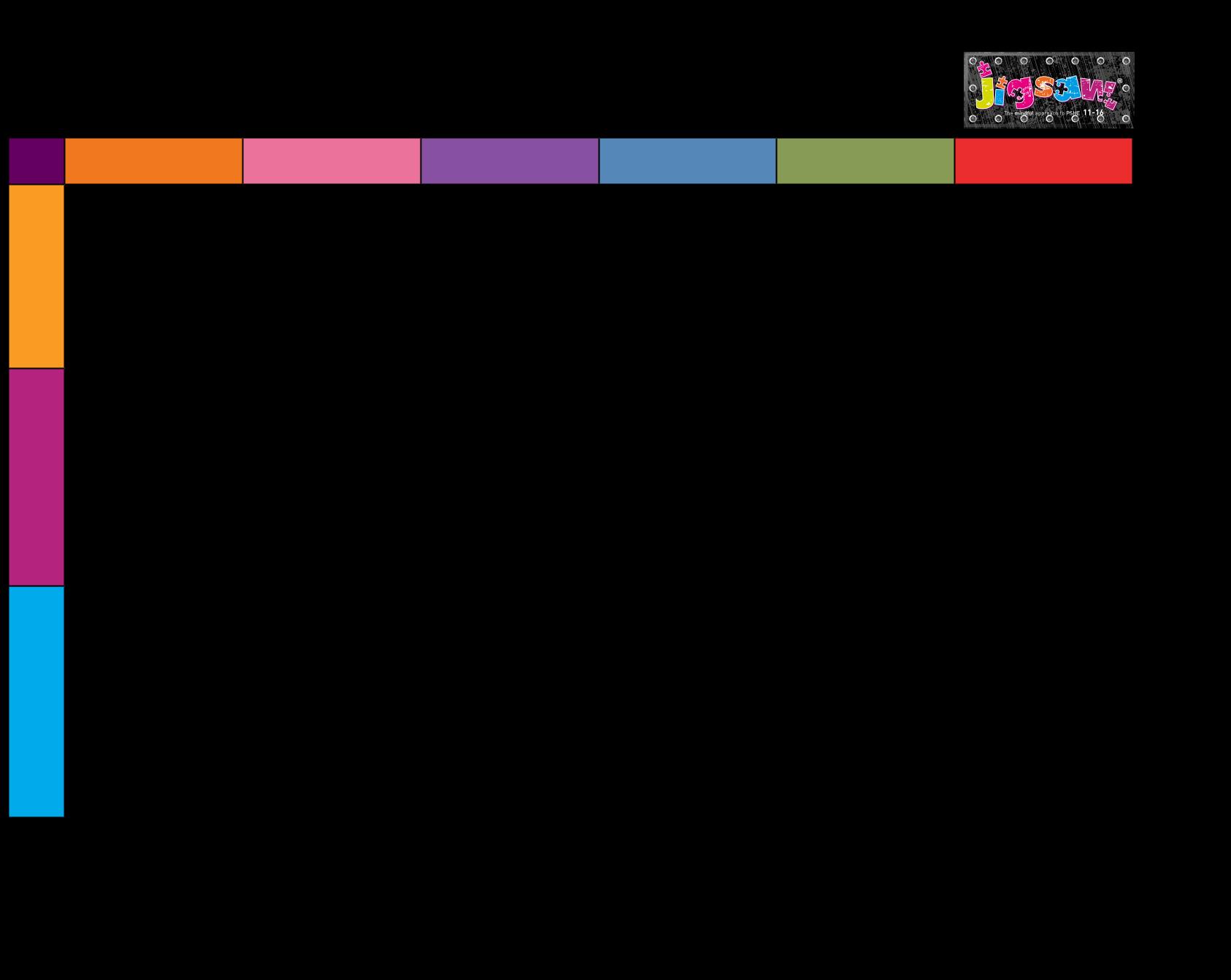
Unique me, differences and conflict, my influences, gateway emotions, belonging to a group, peer pressure, child-on-child abuse, online safety, consequences of sharing personal images, online legislation, online identity.
Bullying, prejudice and discrimination (positive and negative). Equality Act, bystanders, stereotyping, challenging influences, negative behaviour and attitudes, assertiveness, importance of being included.
Celebrating success, identifying goals, employment, learning from mistakes, overcoming challenges, planning skills, safe & unsafe choices, substances, gangs, control over your life, exploitation, emergency first aid.
Stress and anxiety, managing physical activity and mental health, effects of substances, legal consequences, nutrition, sleep, vaccination and immunisation, importance of information on making health choices, physical illness and medicine, mindfulness.
Characteristics of healthier relationships, consent, relationships and change, emotions and conflict within friendships, child-on-child abuse, rights and responsibilities, being discerning, assertiveness, social media vs real life, fake news, authenticity
Puberty changes, reproduction facts, menstrual cycle, responsibilities of parenthood, IVF, types of committed relationships, media and self-esteem, self-image, brain changes in puberty, factors affecting moods, sources of help and support.
Self-identity, influences, family and identity, stereotypes, personal beliefs and judgements, managing expectations, first impressions, marriage and the law, beliefs and religions, protected characteristics, online and offline identity, active listening.
Positive change made by others, how positive behaviour affects feelings of wellbeing, social injustice, inequality, community cohesion and support, multi- culturalism, diversity, race and religion, stereotypes, prejudice, bullying, hate crime, fear and emotions, stand up to bullying, the golden rule.
Long-term goals, skills, qualifications, careers, money and happiness, ethics and mental wellbeing, budgeting, variation in income, positive and negative impact of money, online safety and legal responsibilities, gambling issues.
Types of health, nutrition and exercise, cardiovascular health and diabetes.
Risks, illegal and legal substances, dental health, skin health, vaccinations, peer pressure, teenage brain.
Positive relationship with self, social media, managing a range of relationships, child-on-child abuse, personal space, online etiquette, online privacy, bullying and personal safety, social media issues and the law, coercion, unhealthy balance of power in relationships, sources of support.
Types of close intimate relationships, legal status of relationships, behaviours in healthy and unhealthy romantic relationships, What makes a healthier relationship? Explicit materials and the law, dealing with unwanted messages. Alcohol and the law.
Perceptions about intimate relationships, consent, sexual exploitation, peer approval, child-on- child abuse, grooming, radicalisation, risky experimentation, positive and negative self-identity, groups, influences, social media, abuse and coercion, coercive control in groups, fitting in.
Protected characteristics, Equality Act, phobic and racist language, legal consequences of bullying and hate crime, sexism, ageism, positive and negative language, banter, child-on-child abuse, bullying in the workplace, direct and indirect discrimination, harassment, victimisation. Prejudice, discrimination and stereotyping.
Personal strengths, health goals, SMART planning, the world of work, links between body image and mental health, non-financial dreams and goals, mental health and ill health, media manipulation, self-harm, self-esteem, stigma, anxiety disorders, eating disorders, depression.
Misperceptions about young peoples’ health choices, physical and psychological effects of drugs and alcohol, alcohol and the law, alcohol and drug poisoning, addiction, smoking, vaping, drug classification, supply and possession legislation, emergency situations, first aid, CPR, substances and safety, sources of advice and support, mental health first aid.
Healthy relationships, power and control in intimate relationships, risk in intimate relationships, importance of consent, assertiveness skills, sex and the law, explicit materials and stereotypes, contraception choices, age of consent, family planning, consequences of unprotected sex, STIs, support and advice services.
Mental health stigma, triggers, support strategies, managing emotional changes, resilience and how to improve it, importance of sleep in relation to mental health, reflection on changes, benefits of relaxation, self expression, influences, body image.

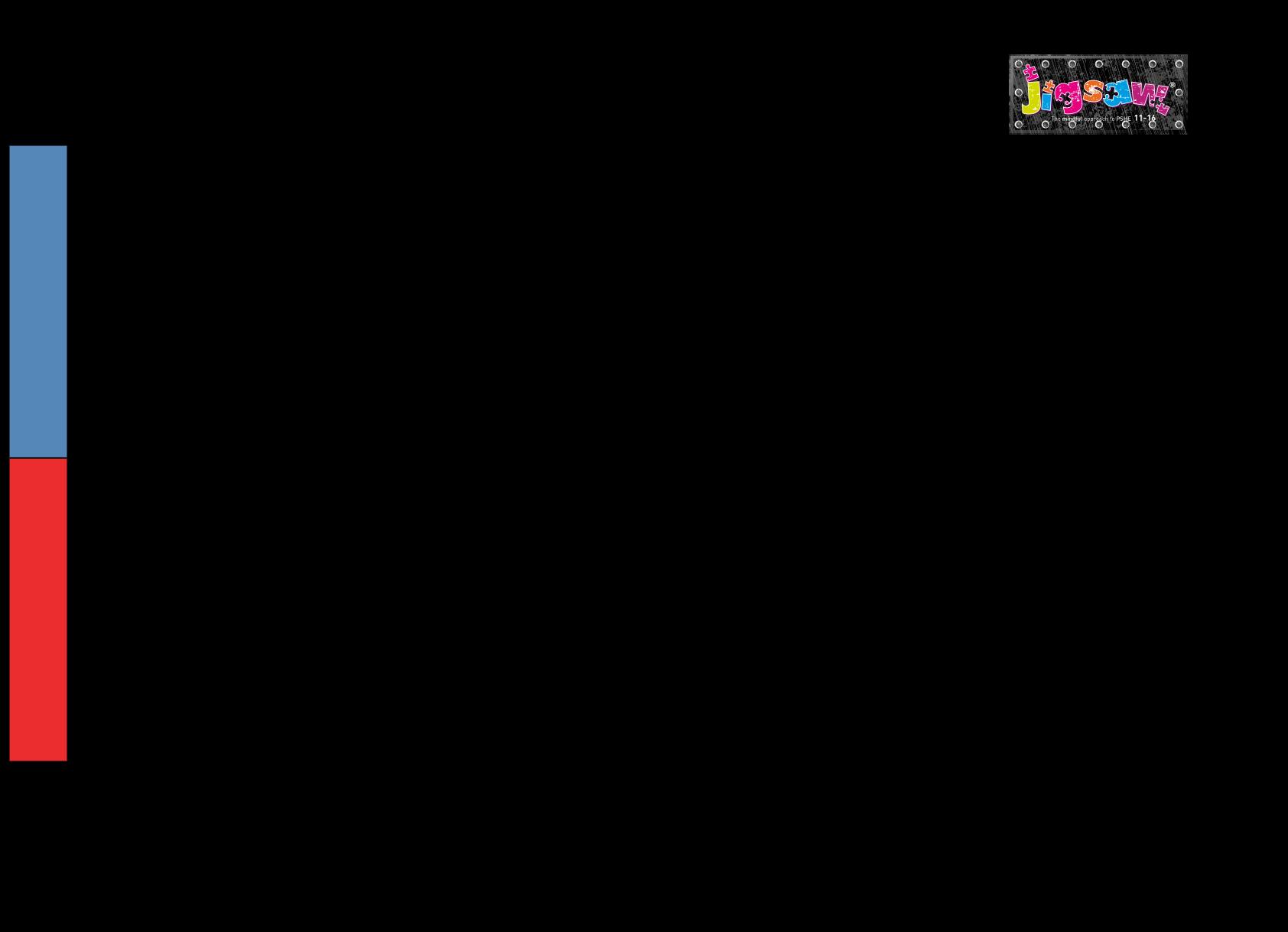
Human rights, societal freedom, understanding safety in MY and beyond, ending relationships safely, stages of grief, loss and bereavement, child-on-child abuse, social media and culture, use of online data, threats to online safety, online identity, assessing and managing risk, the law and social media risk and emergency contacts, positive and negative relationships, GDPR/PDPA, managing screentime, sharing/ enhancing of images, managing different types of relationships.
Becoming an adult, age limits and the law, relationships and the law, consent, coercive control, child-on-child abuse, domestic abuse, honourbased, violence, arranged and forced marriages, the Equality Act, possession of drugs.
The law on internet use and explicit materials, social media concerns, sexting keeping safe, emergency situations, key advice, first aid, scenarios and consequences.
Equality in the workplace, in society, in relationships, Equality Act, disability and hidden disability, workplace expectations, rights and responsibilities, power and control in relationships, coercive control, benefits of multicultural societies, equality and inequality, my health.
Impact of physical and mental health in reaching goals, resilience, work-life balance, connections and impact of mental health. Balanced diet, vital organs, blood donation, benefits of helping others. Online profile and impact on future goals and employability.
Improving health, mental health, sexual health, bloodborne infections, selfexamination. Diet and longterm health, misuse of prescription drugs, substances and the body. Common mental health disorders, positive impact of volunteering. Common threats to health including chronic disease. Epidemics, misuse of antibiotics, organ donation, stem cells.
Sustaining long-term relationships, intimacy, healthy relationship with self, attraction, love, lust. Relationship choices, ending relationships safely, consequences of relationships ending, explicit materials vs real life, relationships and the media, discernment, healthier and less healthy relationships, coercion, abuse and the law, acceptable and unacceptable behaviours.
Impact of societal change on young people, role of media on societal change, reflection on change so far and how to manage it successfully. Decisionmaking, stereotypes in romantic relationships, sexual identity and risk, physical and emotional changes, family change, sources of support, personal safety, cycling, water safety, alcohol, transport.
Anxiety, solution focused thinking, sleep, relaxation, aspirations on; career, finances, budgeting, borrowing. Skills identification, realistic goals, gambling, financial pressure, debt, dream jobs, skills set, employment, education and training options. Long term relationship dreams and goals, parenting skills and challenges. Resilience, what to do when things go wrong.
Managing anxiety and stress, self-worth, identity, sleep, nutrition, exercise and mental health.
Relationships and consent, being ready for loving relationships, coercion, sexual harassment and violence. Puberty, hormones, fertility, testicular checks, menstrual cycle, IVF. Contraceptives and sexual health. Pregnancy choices including adoption, abortion, bringing up a baby. Health choices, mental, physical, sexual health.
Stages of intimate relationships, positive and negative connotations of intimacy.
Balance of power in relationships, addressing steroetypes, challenging harmful social and cultural norms.
Staying true to yourself in a relationship.

